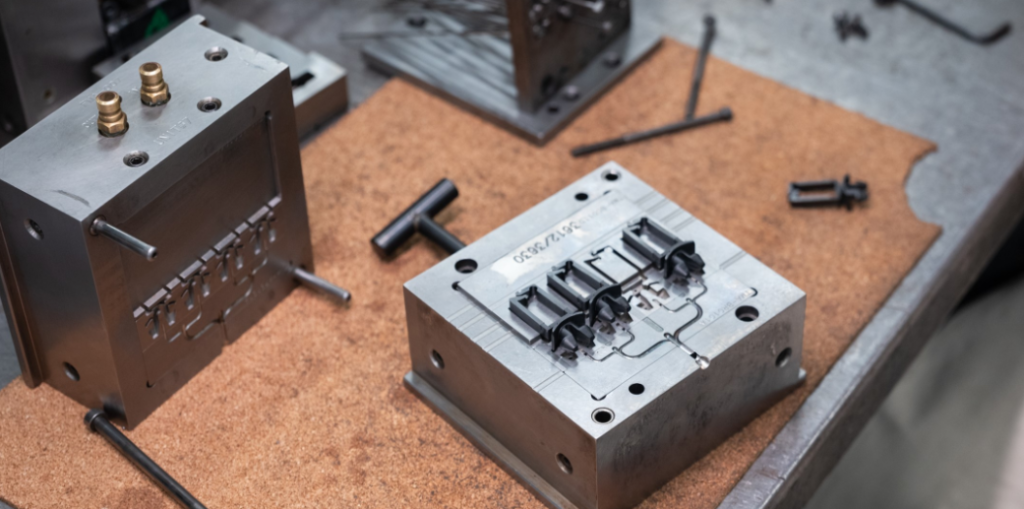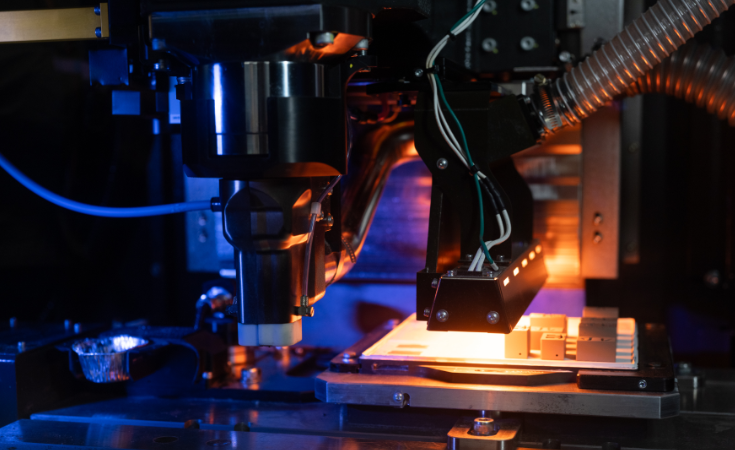Register now for our Additive Manufacturing Advantage online event for insights on AM developments in aerospace, space, and defense sectors from industry leaders!
Metal 3D printer manufacturer Mantle has raised $20 million in its latest Series C funding round.
Bringing the company’s total funding to over $61.5 million, this funding will support Mantle’s rapid market expansion, scaling manufacturing to meet increasing demand, and developing new capabilities and materials. Led by Boston-based private investment firm Schooner Capital, this round saw participation from Mantle’s largest existing investors including 11.2 Capital, Build Collective, Corazon Capital, Fine Structure Ventures, and Foundation Capital.
“Mantle is poised to revolutionize the global tooling industry,” said Alexandra Manick, Principal of Schooner Capital. “The company’s advanced manufacturing platform, TrueShape, is proven to deliver significant cost savings and, more importantly, unprecedented speed for its customers. This paradigm-shifting solution is readily adoptable and sorely needed to address persistent skilled labor shortages and accelerate product development timelines for industrial toolmakers and OEMs worldwide.”

Addressing labor shortages in toolmaking
According to the company, the manufacturing industry is experiencing a severe labor shortage of toolmakers and skilled tradespeople due to an aging workforce and increased demand. To address these challenges, manufacturers are turning to automation and advanced technology with many choosing Mantle’s expertise.
Consequently, Mantle announced its expansion in the tooling sector with three new customers including DuPont’s subsidiary Spectrum Plastics Group, Heyco Products, and General Pattern. Heyco Products has implemented Mantle’s technology for in-house molding and toolmaking, while General Pattern has used it to build production tools with significantly reduced lead times and labor costs, saving 3.5 weeks of lead time and requiring just four active hours of toolmaker time.
This growth highlights the substantial time and cost savings Mantle’s technology offers in tooling production. In addition, Mantle also highlighted an example with Westminster Tool, which used Mantle’s 3D printers for tooling applications. This allowed Westminster Tool to quickly produce complex mold inserts, reducing traditional lead times by 50%.
One year ago, Mantle released two case studies showcasing how Nicolet Plastics and Westec Plastics successfully used its technology to streamline toolmaking processes. Both companies, injection molders in the medical device market, achieved significantly reduced production time and labor. Nicolet Plastics cut toolmaker time from 180 hours to 12.5 hours, while Westec Plastics reduced active operation hours on inserts from 40 to 10, effectively halving the tooling cost.

Metal AM positioned for growth in tooling needs
Mantle says its precision metal 3D printing technology, designed for injection mold tools, overcomes the limitations of other methods by reducing time and costs for high-quality molds. It ensures precision and surface finish while streamlining production and lowering the need for skilled labor.
Ranging from deodorant packaging to industrial components, and medical devices, Mantle’s technology has produced millions of end-use products, focusing on tools for mass production. This approach has reduced costs by over 65% and sped up development timelines by up to 90%.
Away from Mantle, French metal 3D printing specialist AddUp launched AISI 420 steel material suitable for tooling applications. Compatible with FormUp 350 machines, it enables complex mold production with minimal post-processing. Unlike specialized alloys, AISI 420 enables existing post-processing techniques to be directly applied, which simplifies production.
Elsewhere, BASF’s 3D printing division Forward AM introduced Ultrafuse 17-4 PH metal filament tailored for 3D printed tooling applications. Based on 17-4 stainless steel, this material, consists of metal powder embedded in a polymer matrix, allowing for safe and cost-effective metal printing on standard FFF systems.
Join the Expert Committee for the 2024 3D Printing Industry Awards to help select the winners!
What 3D printing trends do the industry leaders anticipate this year?
What does the Future of 3D printing hold for the next 10 years?
To stay up to date with the latest 3D printing news, don’t forget to subscribe to the 3D Printing Industry newsletter or follow us on Twitter, or like our page on Facebook.
While you’re here, why not subscribe to our Youtube channel? Featuring discussion, debriefs, video shorts, and webinar replays.
Featured image shows a Heyco mold for a wire management product was printed using Mantle 3D printing technology. Photo via Heyco Products.



